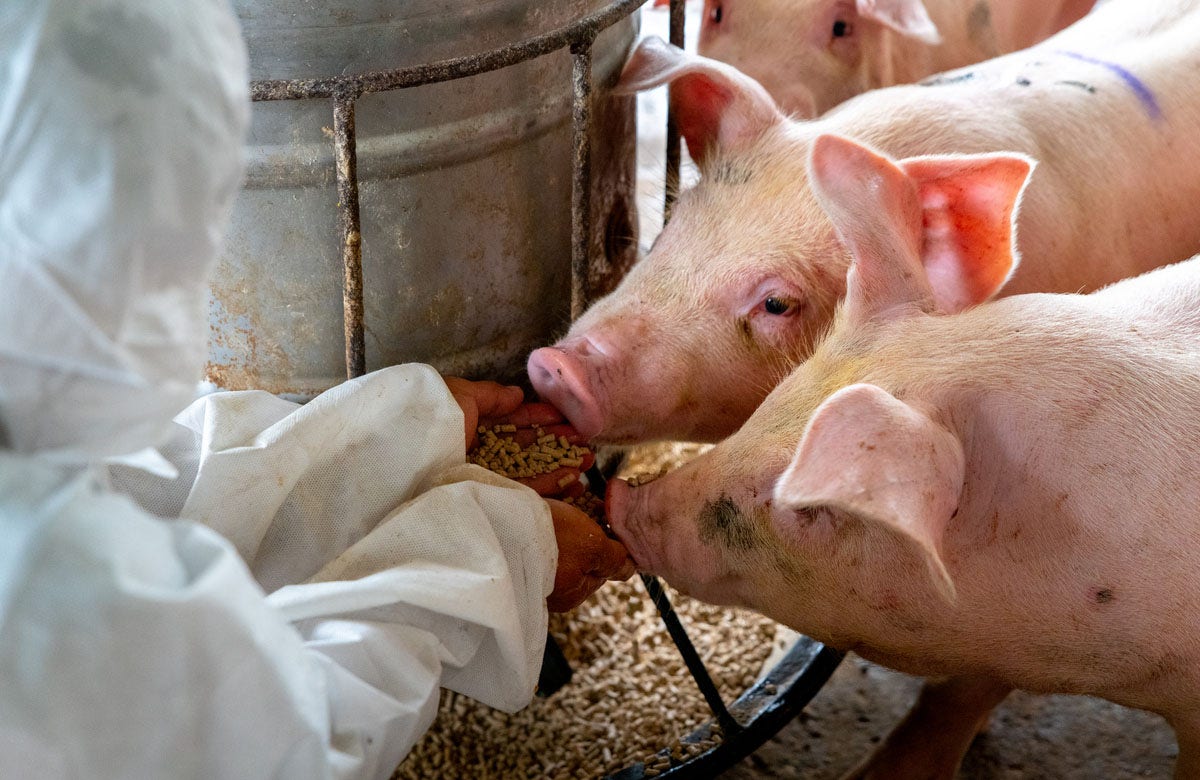Pig infected with bird flu for first time in US, health officials confirm

A pig in Oregon has tested positive for H5N1 bird flu, marking the first detection of this strain in swine in the U.S., according to an announcement from the U.S. Department of Agriculture (USDA) on Wednesday. The infected pig was part of a backyard farming operation that housed a mix of poultry and livestock.
The USDA National Veterinary Services Laboratories confirmed the presence of H5N1 in the pig, which did not show any symptoms of illness. The farm where the infected pig was found has been placed under quarantine to prevent further spread of the virus, and the other animals on the farm are being closely monitored.
The infected pig was tested along with four other swine out of an abundance of caution after other animals on the farm tested positive for the virus. Two of the pigs tested negative, while results for the remaining two are still pending. It is important to note that the animals on this farm were not intended for the commercial food supply, so there is no concern about the safety of the nation’s pork supply.
Experts have expressed concern about the potential for H5N1 to spread among pigs and create new strains of the virus. Dr. Marc Siegel, a clinical professor of medicine at NYU Langone Health, highlighted the role of pigs as a mixing vessel for flu viruses, which can lead to the development of new, potentially more transmissible strains.
Dr. Benjamin Anderson, an assistant professor at the University of Florida, emphasized the need for regular testing and surveillance to detect subclinical or asymptomatic infections in livestock. He warned that the genetic material from other influenza virus strains circulating in pigs could recombine with H5N1 to create a new virus that is more transmissible to humans.
While there are concerns about the spread of H5N1 in the U.S., experts have pointed out factors that may mitigate the risk. Samuel Scarpino, a professor of health sciences at Northeastern University, noted that the farm where the infected pig was found was relatively small, reducing opportunities for transmission and evolution of the virus.
Despite these mitigating factors, Scarpino called for increased resources for influenza surveillance to include clinical and wastewater testing. He stressed the importance of protecting farm workers and preventing the transmission of the virus to others.
As the U.S. enters the normal seasonal flu period, experts are urging vigilance in monitoring for rare H5N1 infections. The CDC, along with state and local public health agencies, are encouraged to enhance efforts to detect and prevent the spread of the virus.
In conclusion, while the detection of H5N1 in a pig in Oregon is concerning, it serves as a reminder of the ongoing threat posed by avian influenza viruses. Continued surveillance and preventive measures are essential to safeguard public health and prevent the spread of potentially dangerous strains of the virus.




